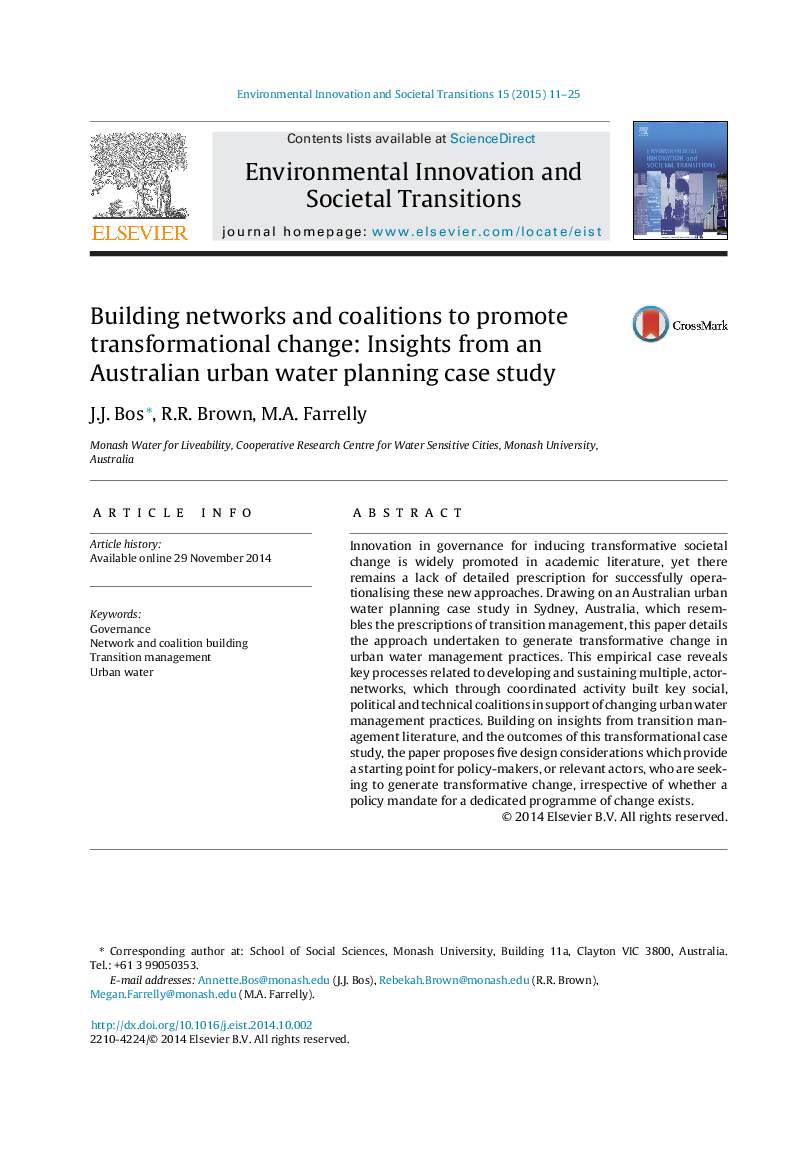| Article ID | Journal | Published Year | Pages | File Type |
|---|---|---|---|---|
| 108187 | Environmental Innovation and Societal Transitions | 2015 | 15 Pages |
•We examine an emergent governance experiment centred around urban water planning.•Key factors in developing and sustaining actor networks for change were revealed.•Facilitated collaboration built social, political and technical coalitions.•Confirms the value of individual transition management prescriptions.•Proposes key design considerations for guiding policy change programmes.
Innovation in governance for inducing transformative societal change is widely promoted in academic literature, yet there remains a lack of detailed prescription for successfully operationalising these new approaches. Drawing on an Australian urban water planning case study in Sydney, Australia, which resembles the prescriptions of transition management, this paper details the approach undertaken to generate transformative change in urban water management practices. This empirical case reveals key processes related to developing and sustaining multiple, actor-networks, which through coordinated activity built key social, political and technical coalitions in support of changing urban water management practices. Building on insights from transition management literature, and the outcomes of this transformational case study, the paper proposes five design considerations which provide a starting point for policy-makers, or relevant actors, who are seeking to generate transformative change, irrespective of whether a policy mandate for a dedicated programme of change exists.
